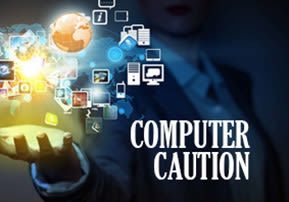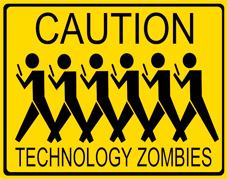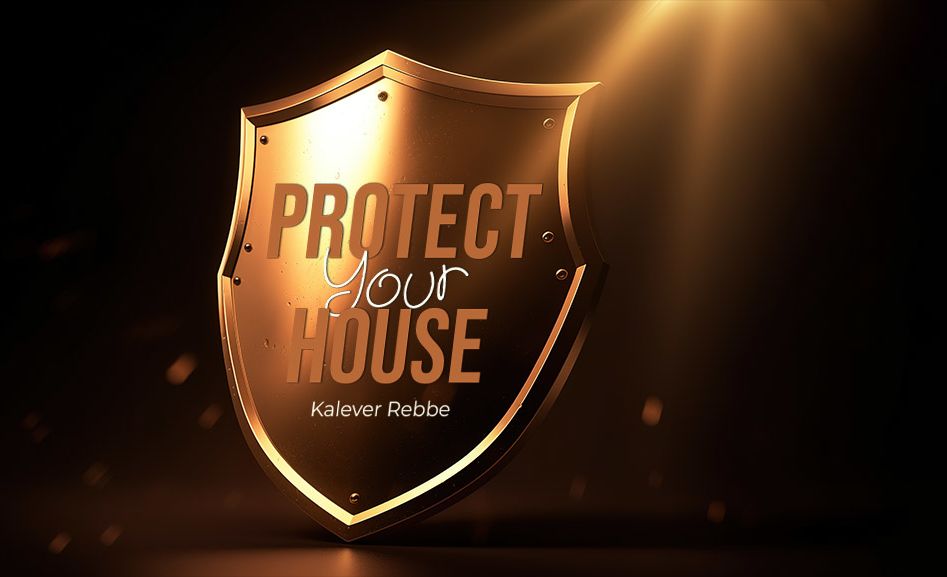
Computer Caution
Without proper educational guidance, young men and women will be left to their own whims how and when they will use the powerful but dangerous medium called the internet...

One of the ways of telling if someone is above or below the age of 35, without looking at his or her face, is to watch how comfortably the person uses a computer and the web. I teach in a Yeshiva, a school for Jewish studies for post-high school boys, where the students comfortably and swiftly surf the net and download the most recent apps. Watching them leaves me both humbled and a little frustrated at being from the over-35 group (i.e. not so computer savvy). Even so, I’ve had enough exposure to today’s technology to have developed some experience as well as some thoughts and opinions about its use.
In certain sectors of the Jewish world there is a tendency for the older generation to approach the topic of computers with the hope that computers (and their negative influences) will somehow disappear. I think we all are fully aware that today’s technology, with its pluses and minuses, is not just a passing phase. On the other hand, I also feel it is irresponsible for educators and parents to blindly accept all of the consequences of a world turned web. We can and must be educated consumers and guides on how to best use and channel the almost limitless resources of the internet. If not, we will be amiss in two ways. One, without proper guidance on an educational level, young men and women will be left to their own whims how and when they will use the powerful but dangerous medium called the internet. Two, if we don’t develop a vibrant curriculum for directing  young minds who live in a world so dependent on the web, we will be giving the message that computers and internet is entirely evil. Obviously, if this is the technology that presents itself today, by definition, it must have a place in Hashem’s world and must have a use for the good.
young minds who live in a world so dependent on the web, we will be giving the message that computers and internet is entirely evil. Obviously, if this is the technology that presents itself today, by definition, it must have a place in Hashem’s world and must have a use for the good.
With this said I would like to make a general observation about the use of computers and the web. There is much to be said about the use and abuse of the internet but I would like to address a more general, pedagogical point.
In general, there are two interrelated aspects of education; it is both intellectual as well as emotional. Transmitting information is essential for good teaching but if the lessons are only directed to the mind, the student will lose out emotionally in two ways. First, the knowledge being imparted can become simply a list of facts and figures often dampening the child’s excitement and curiosity. Second, and more serious, the information imparted will have little or nothing to do with improving the quality of the student’s life. The transmission of information, per se, is not education.
Computers are outstanding tools to communicate information. The amount of raw knowledge on the web is truly staggering. However, there is an essential step not built into the process of using a computer which makes its use educationally hazardous. Please note, I’m not discussing the negative content of what is available (pornography, etc.) nor the often damaging reality of social networking. I’m addressing the possible pitfalls of the very use of a computer and internet. Also please remember, I am not knocking the unique advantages. I’m attempting to point out the stumbling blocks along the road.
Returning to the point at hand, the web is an incredible tool to impart intellectual knowledge. However, reading and viewing does not usually help a person develop the multi-faceted aspects of his or her emotional world. In order to do that, life must be lived. People need to interact with real people. They need to smell fresh flowers and hear the birds chirp. No “Photo-shop” photos will ever duplicate the beauty of a sunset seen by the naked eye. There are almost endless possibilities of how do help a child develop the rich internal world of the emotions. Using the internet can only help a little, if at all (as I will try to explain).
For example, part of what is available today on the web is an almost endless number of movies and television programs. (Again, the quality of movies and television is not my focus.) What occurs by watching these means of entertainment is the child gets used to someone else living life for them. The actor or actress cries, laughs, and loves while the watcher just watches. This tragedy is paralleled by the use of computers and internet. Its very use runs the risk of making a child an observer and not a participant in life’s wonders. We need to help ourselves and our children experience the joy of life first hand.
On a religious level, one can read hundreds of articles on any of the many wonderful Jewish websites (including this site, of course). But nothing can replace the beauty of a Shabbat meal, the excitement of a Jewish wedding, or the memories of a festive holiday celebration.
Computers are here to stay. How they will be used will determine whether they will bring us closer to our humanity and greatness. Let us wisely use our computers and internet and let us try to better understand the benefits and the shortcomings of today’s technology. Through this awareness we will able to develop our children and ourselves into healthy, well-rounded individuals, both intellectually and emotionally.
* * *
Rabbi Dovid Charlop is on the teaching staff of the Neve Tzion Yeshiva in Telzstone, Israel. You can see more of Rabbi Charlop's articles here.












Tell us what you think!
Thank you for your comment!
It will be published after approval by the Editor.